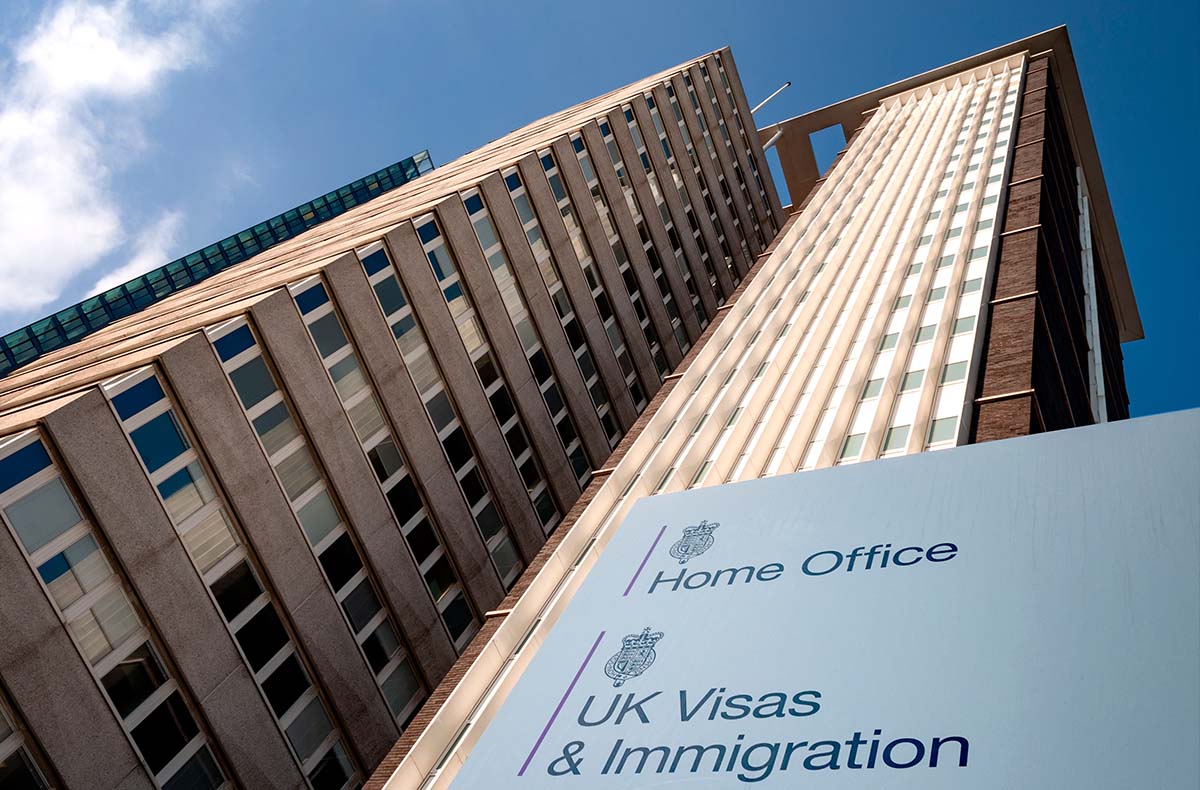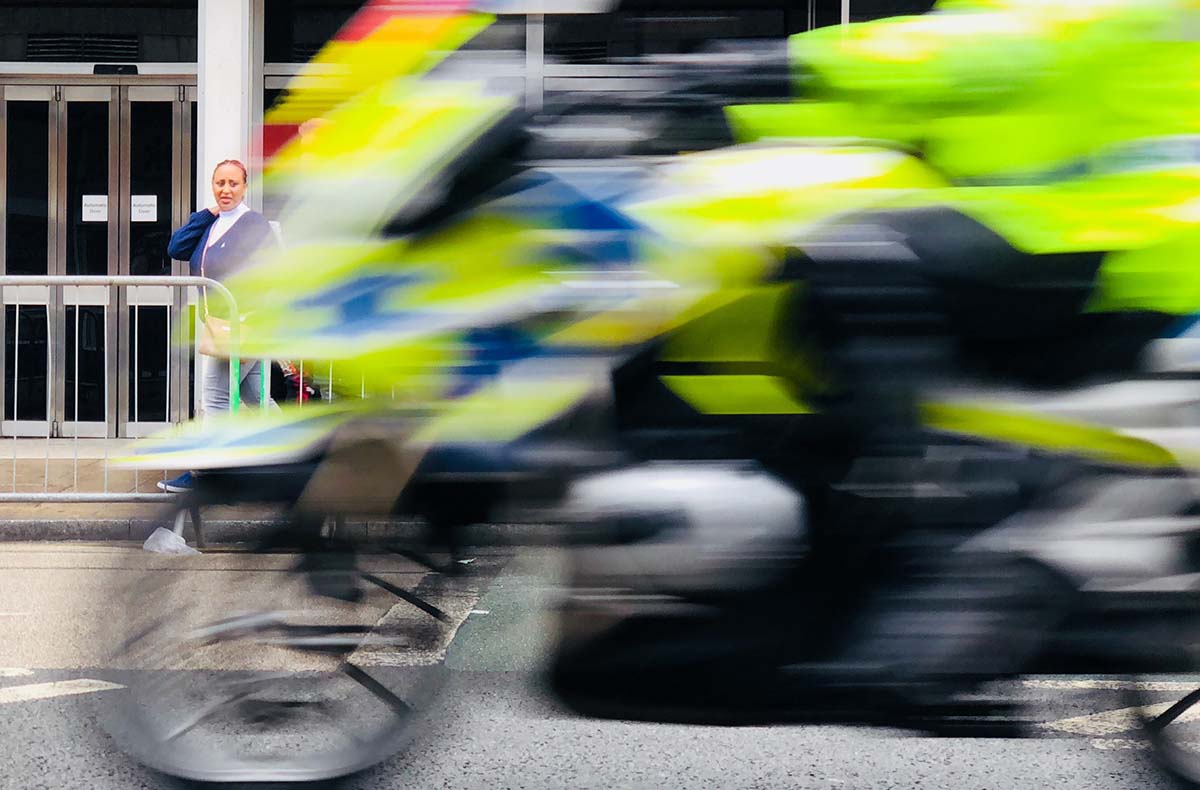
It resembled a scene from a Hollywood thriller.
Tense-looking detainees sat on a privately chartered plane, nervously tapping their feet and glancing expectantly at wristwatches. Would their supporters deliver a late reprieve?
Elsewhere on the Boeing 767, eagle-eyed security guards stood ready to tackle on-board attempts to prevent the planned flight from leaving MoD Boscombe Down: a military airfield eighty miles from London.
In the cockpit, the flight captain patiently awaited approval for take-off. Almost 4,500 miles away in Rwanda’s capital, Kigali, officials were busy putting their side of the controversial plan into place.
Silence. Tick-tock…
Suddenly, over the cockpit radio, an instruction: get the plane off the runway and remove the detainees. It was over. For now.
That canceled flight on 14 June 2022 was minutes from take-off, and one of the most embarrassing incidents in the checkered history of the Home Office—the UK equivalent of the Department for Homeland Security—was narrowly avoided.
The detainees were due to be the first UK asylum seekers relocated to Rwanda while awaiting the result of applications to remain, all part of an expensive contract between the two governments.
Instead, lawyers representing asylum seekers made a last-ditch plea to the European Court of Human Rights (ECHR) to intervene.
While asylum-seekers and political opponents celebrated, Home Office ministers raged—including the policy’s political creator, (now former) home secretary Priti Patel. How dare a European court block the post-Brexit decision of democratic Britain?
Well, it’s because according to a United Nations assessment, the Rwanda program is potentially illegal.
Officially, the policy is a five-year trial that could see thousands of asylum seekers—mostly single men who enter the UK via dangerous small boat crossings or lorry ferries across the English Channel—sent to Rwanda on one-way tickets.
Those marched onto planes could be granted refugee status in Africa. If not, they could apply to settle in Rwanda on other grounds or seek asylum in a “safe third country.” Rwanda has received £120m upfront to host early asylum seekers, with more cash to come.
The point of the policy, Westminster’s government says, is to deter people from entering the UK through “illegal, dangerous or unnecessary methods.” Since immigration topped lists of public concerns during the toxic Brexit debate, successive administrations have sought to appear tough on the issue.
Net immigration into the UK peaked at 331,000 during Europe’s refugee crisis in 2015: an annual population increase equivalent to a city the size of Cardiff.
After Brexit, UK ministers sought a populist response to this perceived Malthusian threat—although few experts believed immigration numbers represented an unmanageable problem, especially as most immigrants were legal and contributed to the UK economy.
There is little doubt the Rwanda policy was designed to send a loud message that illegal entrants are likely to end up thousands of miles away just for trying.
As a signal of Patel’s unwelcoming intent, the Rwanda policy became the UK’s version of Donald Trump’s “Mexico Wall”. The comparison is even more apt when you consider that, like Trump’s wall-based wet dream, the Rwanda policy may be short-lived.
Lawyers, campaign groups, and charities argue Rwanda is not a suitable asylum partner because of human rights abuses. They told the UK High Court that Rwanda’s government has embarked on extreme surveillance of its citizens, torture and even murder of political opponents: allegations Rwanda denies.
In contrast, the UK government claims Rwanda is “a secure country” with a “track record” of supporting asylum. Kigali’s government says asylum seekers will enjoy “full protection under Rwandan law, equal access to employment, and enrolment in healthcare and social care services.”
It is almost certain that, whoever wins the High Court argument, this case is heading for the higher Court of Appeal—where specialist judges will determine the policy’s legality.
Despite alarming evidence suggesting asylum seekers are at greater risk of abuse, the UK’s Conservative government still hankers after a Rwanda policy that divides public opinion.
Priti Patel left the Home Office once Conservative grandees prised Boris Johnson’s fingers from power. Johnson’s resignation pre-empted Liz Truss’s elevation to prime minister in September, and many commentators wondered whether the new PM’s regime would proceed with the seemingly doomed Rwanda project.
Of course, Truss is now history after a chaotic 44 days in charge, replaced as PM by Rishi Sunak, the wealthy son of Indian immigrants. And Patel’s replacement, Suella Braverman, is determined to continue with the initial £120m contract.
Braverman, the daughter of Indian immigrants, was Sunak’s controversial choice as home secretary. Before entering politics, she was a barrister specializing in immigration law. So, she ought to understand the implications of an asylum policy which potentially contravenes the principle of offering a safer haven to those fleeing wars or persecution.
After Truss’s regime descended into open warfare between “hard Right” and “moderate” Conservatives, the hard-line Braverman reportedly fell out with the struggling PM over immigration commitments. Braverman then resigned in disgrace, after she admitted breaching national security by sending sensitive Home Office-related information from her private email address.
Incredibly, however, she was reappointed as home secretary by Sunak. Nobody quite knows how she managed to return just six days after resigning. But she’s back—and determined to re-float the sinking Rwanda policy.
In the meantime, the airline contracted to fly asylum seekers to Rwanda has withdrawn from the contract, citing pressure from critical campaigners. Welcome to chaos-ridden Britain!
Braverman claims it is her “dream” to see the first Rwanda-bound flight leave the UK before Christmas.
Let me tell you now: that won’t happen. The wheels of British justice turn painfully slowly. So while the High Court will soon give its verdict on the legality of the Rwanda policy, it’s almost inconceivable that the Court of Appeal would rule on this inhumane and populist dirge before the festive season.
Asylum seekers should confidently order their turkeys now. Happy holidays!



